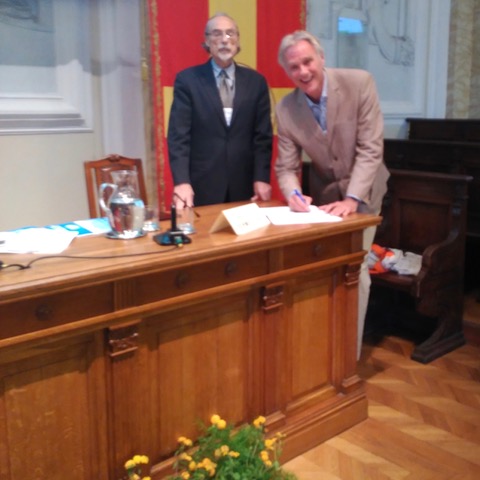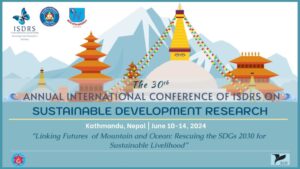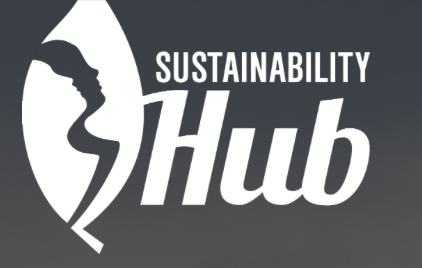Goal 15 aims to protect, restore and promote sustainable use of terrestrial ecosystems, sustainably manage forests, combat desertification, and halt and reverse land degradation and halt biodiversity loss.
Healthy, resilient ecosystems and their services are usually considered essential but often neglected requirements for successful sustainable development. Conservation of biodiversity will help provide essential ecosystem services, as well as resources for societal development, but in the urgent rush to promote economic development, the accompanying threats to biodiversity and ecological integrity are often ignored where short-term "development" undermine the longer-term prospects for sustainable development. How then to ensure societies can develop sustainably at the same time as terrestrial ecosystems are successfully managed to conserve biodiversity? This track thus, aims to investigate how threats to ecological integrity, biodiversity and healthy ecosystems can be managed to simultaneously support and indeed, enhance sustainable development in a variety of contexts.
We have sought research that demonstrates strategies to conserve terrestrial biodiversity that supports the sustainable development of human communities. We have been especially keen have contributions that
- Demonstrate how loss of biodiversity can adversely affect sustainable development
- Demonstrate strategies for successful conservation of biodiversity on land that can support sustainable development of communities
- Highlight innovative strategies for conservation, especially in developing countries where there are threats to biodiversity conservation
Next Conference: Track 3a
Keep up to date with developments of ISDRS 2024 Track 2b here
“Linking Futures of Mountain and Ocean: Rescuing the SDGs 2030 for Sustainable Livelihood“
News
CBD-COP 2018 in Egypt
Our topic group has given input to the negotiators at the UN Biodiversity Conference 2018, the 14th meeting of the Conference of the Parties to the Convention on Biological Diversity - COP 14, Sharm El-Sheikh, Egypt, 17-29 November 2018. ISDRS organized jointly with IUNCBD jointly a side-event where policy briefs were presented on Ecosystem Restoration to reverse loss of biodiversity. Look for our Policy Brief here.
Partnering IUNCBD
On June 13th, 2018, at the inaugural session of the 24th ISDRS Conference at Messina (Sicily, Italy), the International Sustainable Development Research Society (ISDRS) , represented by its President, Prof. Walter Vermeulen, and the International University Network on Cultural and Biological Diversity (IUNCBD), represented by its President Prof. Pierluigi Bozzi, signed an agreement of cooperation.  The objective of the agreement is to stimulate and facilitate common participation of ISDRS members and universities of the IUNCBD in programs of sustainable development and conservation of cultural and biological diversity at all the administrative and spatial scales and to contribute together to integrate the principles and practices of sustainable development and diversity conservation in international, regional and national forums.
The objective of the agreement is to stimulate and facilitate common participation of ISDRS members and universities of the IUNCBD in programs of sustainable development and conservation of cultural and biological diversity at all the administrative and spatial scales and to contribute together to integrate the principles and practices of sustainable development and diversity conservation in international, regional and national forums.
Past Conference
ISDRS 2021
Track chairs: Professor Rob Wallis, Federation University Australia, AUSTRALIA, r.wallis@federation.edu.au
Professor Bengt Gunnar Jonsson, Mid Sweden University, Sundsvall, Sweden, and Swedish University of Agricultural Science, Umeå, Sweden, bengt-gunnar.jonsson@miun.se
The 2021 virtual conference hosted by Mid Sweden University had presentations covering a range of topics relevant to SDG 15 – Life on Land. They covered a wide geography and fields across the globe – from boreal forest management, to use of native plants in California, combatting desertification in Portugal, game hunting and conservation in South Africa and exploitation of jaguars from the Americas for medicinal and other purposes. A paper was also presented in the Ph D session on restoring nature to Natura 2000 in Portugal.
Given the diversity of presentations and topics covered, it is not surprising that publication of outcomes from research in Track 3a is not concentrated in any one journal. Instead, we encourage contributors to seek their most appropriate outlets to promote their research and that of this important track in ISDRS.
Messina, Italy, 2018
Our two tracks 3A and 3B addressed the SDGs “Life on land” and “Life under water”. The presentations covered a diverse set of topics and case studies that, in essence, examined the question whether it is possible to have development of human communities without compromising existing biodiversity. We also acknowledged the great benefits high biodiversity can provide humanity and whether it is possible to restore deleteriously altered ecosystems to enhance biodiversity.
Below a few key results of the 3a Life on Land track at the Bogotá Conference (2017) are displayed. A wide variety of interesting talks led to the following general conclusions;
• Ecosystem services (ESS) are a bridge concept linking natural, social and cultural sciences with decision makers from different walks of life.
(read more)
Knowledge Sources
State of the Art
(to be added soon)
Recommended Sources:
1) Recent insights and state of the art knowledge on conservation and sustainable use of biodiversity be found on the intergovernmental knowledge platform IPBES - Science and Policy for People and Nature (read more)
2) Look at the UN Sustainable Development Solutions Network on Forests, Oceans, Biodiversity, and Ecosystem Services
3) Useful courses available at the UN SDG Academy; see for example From the Ground Up: Managing and Preserving Our Terrestrial Ecosystems
4) Recent IPBES report: Main cause of species loss & driver of the migration of millions of people by 2050 In landmark 3-year assessment report, 100+ experts outline costs, dangers & options
5) All information about and reports linked to the Convention on Biological Diversity
Routledge & Earthscans' Sustainability Hub
Find useful essays, free books and articles, case studies and more at our partner's website:
Who are we?
Who are we?
Prof. Francisco Comín
How to get involved?
Do you want to contribute to our knowledge platform and engage in exchanging best practices? We invite ISDRS members (senior and junior scientists) interested in this topic to join and participate, please mail us!
Look at how you can contribute to our topic groups
LinkedIn Discussions in our Topic Group 3a
Recent discourses on the ISDRS LinkedIn discussion group:


